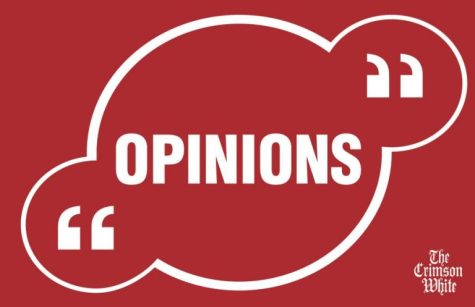Consumer freedom is the key to ending climate change
October 17, 2019
If there was money to be made by stomping puppies to death, there’s no doubt that somebody in our free-market society would fill that niche. Now, before you work yourself into a frenzy, I’m not advocating for this business in any way (though I have always been more of a cat person). Something such as this brings with it a litany of problems, with the most glaring being that there is no demand for such a service. If there was a demand, there would be someone out there with a pair of steel-toed boots desperately trying to feed his family. I, for one, can’t demonize someone for attempting to support themselves and those they care about, and you shouldn’t either. I can, however, at least say I would not be paying for this service.
My lack of investment in such a business serves as my voice, a sort of vote in the democratic world of industry. The beauty of the free market and capitalism as a whole is that I am never forced into supporting a cause that I do not personally stand for. Be it a devilish pharmaceutical company bent on prolonging the opioid crisis for generations to come, a natural gas conglomerate violating our planet in the worst possible way, or our imaginary puppy basher, I, along with my fellow consumers, are more than capable of putting our money where our mouths are. This freedom will be the driving force in ending the climate change crisis. As a consumer, I can buy an electric car. Nobody is holding a gun to my head and telling me that I need to use petroleum products. Similarly, I could buy a barrel of oil every day and burn it in my front yard because I find the smog it produces to be pretty. Most people would find this abhorrent for one reason: there has been a rapid shift in consumer preferences towards sustainable and environmentally friendly products. Yes, Becky might be pretentious about her Hydro Flask, but her purchase is indicative of something greater: consumers banding together in a manner that is both environmentally and economically friendly.
The argument that the free market is not capable of ending climate change without government intervention is, at best, incredibly harmful. While government intervention could, in the short run, help to offset the greenhouse gas emissions of the worst offenders, it is unable to do so without irreparably harming the economy as a whole. One doesn’t even have to look outside of the U.S. to see how harmful this government intervention can be.
In the state of California, all new houses that are constructed after 2020 must have solar panels. Now that’s a state government that has its act together – or at least it would be if this wouldn’t help to exacerbate the already sky-high housing prices the state suffers from. After factoring in housing costs and other basic necessities, a whopping 19% of Californians are considered impoverished by the U.S. Census Bureau. Solar panels aren’t cheap, and allowing a wealthy, liberal upper class to dictate what products we are allowed to use “for the sake of the planet” is akin to China forcing a one-child policy on its citizens “for the good of the People’s Republic.”
Contrary to popular belief, solar and wind energy are not even 100% emission-free. In times when solar panels and wind turbines are not producing enough energy, we don’t simply go without electricity. We instead rely on backup energy supplies generated by natural gas. While California’s emissions will be lowered, their wealth inequality and environmental smugness remain at some of the highest levels in the nation.
The only emission-free energy is, of course, one that is stifled almost entirely by government regulation and blatant consumer misinformation: nuclear energy. Here we can see quite clearly that government restriction of consumer choice, along with the overregulation of corporations (which are nothing more than the pooling of capital resources, not the biblical evil they are portrayed as by many) is to blame for our current climate crisis. Once our government, those bureaucrats whose lives are dedicated to controlling the lives and the futures of not just others, but also our planet, allow consumers to decide how we will care for our planet, we will finally be free of climate change.










